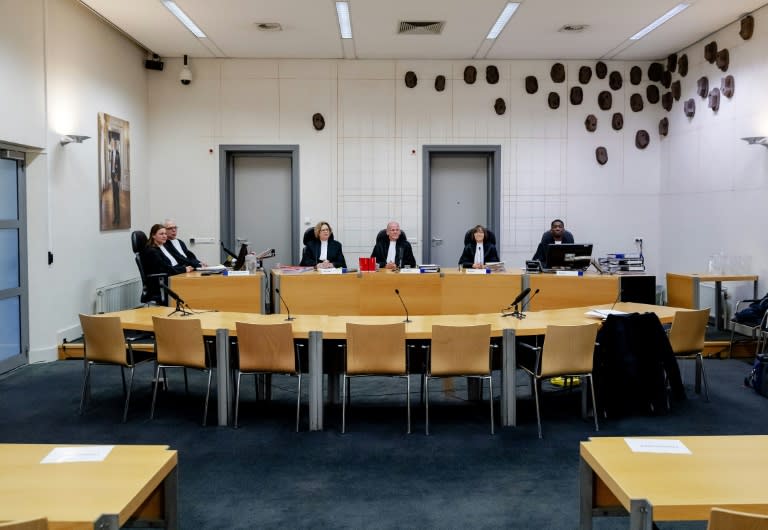LONG READ DOS SANTOS ANGOLA CORRUPTION
Michael Forsythe, Kyra Gurney, Scilla Alecci and Ben Hallman,
The New York Times•January 20, 2020

Ana Gomes, a former European Parliament member who
has accused Isabel dos Santos of money laundering, in
Lisbon, Portugal, Jan. 8, 2020. (Ana Brigida/The New York Times)
LISBON, Portugal — It was the party to be seen at during the Cannes Film Festival, where being seen was the whole point. A Swiss jewelry company had rented out the opulent Hotel du Cap-Eden-Roc, drawing celebrities like Leonardo DiCaprio, Naomi Campbell and Antonio Banderas. The theme: “Love on the Rocks.”
Posing for photos at the May 2017 event was Isabel dos Santos, Africa’s richest woman and the daughter of José Eduardo dos Santos, then Angola’s president. Her husband controls jeweler De Grisogono through a dizzying array of shell companies in Luxembourg, Malta and the Netherlands.
But the lavish party was possible only because of the Angolan government. The country is rich in oil and diamonds but hobbled by corruption, with grinding poverty, widespread illiteracy and a high infant mortality rate. A state agency had sunk more than $120 million into the jewelry company. Today, it faces a total loss.
Dos Santos, estimated to be worth over $2 billion, claims she is a self-made woman who never benefited from state funds. But a different picture has emerged under media scrutiny in recent years: She took a cut of Angola’s wealth, often through decrees signed by her father. She acquired stakes in the country’s diamond exports, its dominant mobile phone company, two of its banks and its biggest cement maker, and partnered with the state oil giant to buy into Portugal’s largest petroleum company.
Now, a trove of more than 700,000 documents obtained by the International Consortium of Investigative Journalists, and shared with The New York Times, shows how a global network of consultants, lawyers, bankers and accountants helped her amass that fortune and park it abroad. Some of the world’s leading professional service firms — including the Boston Consulting Group, McKinsey & Co. and PwC — facilitated her efforts to profit from her country’s wealth while lending their legitimacy.
The empire she and her husband built stretches from Hong Kong to the U.S., comprising over 400 companies and subsidiaries. It encompasses properties around the world, including a $55 million mansion in Monte Carlo, Monaco, a $35 million yacht and a luxury residence in Dubai, United Arab Emirates, on a seahorse-shaped artificial island.
Among the businesses was the Swiss jewelry company, which records and interviews reveal was led by a team recruited from Boston Consulting. They ran it into the ground. Under their watch, millions of dollars in Angolan state funds helped finance the annual parties on the French Riviera.
When Boston Consulting and McKinsey signed on to help restructure Sonangol, Angola’s state oil business, they agreed to be paid in an unusual way — not by the government but through a Maltese company dos Santos owned. Then her father put her in charge of Sonangol, and the government payments soared, routed through another offshore company, this one owned by a friend of hers.
PricewaterhouseCoopers, now called PwC, acted as her accountant, consultant and tax adviser, working with at least 20 companies controlled by her or her husband. Yet there were obvious red flags as Angolan state money went unaccounted for, according to money-laundering experts and forensic accountants who reviewed the newly obtained documents.
When the Western advisory firms came into Angola almost two decades ago, they were viewed by the global financial community as a force for good: bringing professionalism and higher standards to a former Portuguese colony ravaged by years of civil war. But ultimately they took the money and did what their clients asked, said Ricardo Soares de Oliveira, an international politics professor at Oxford who studies Angola.
“They are there as all-purpose providers of whatever these elites are trying to do,” he said. “They have no moral status — they are what you make of them.”
Now, more than two years after her father stepped down after 38 years as Angola’s strongman president, dos Santos is in trouble.
Last month, an Angolan court froze her assets in the country as part of a corruption investigation, along with her husband’s and those of a Portuguese business associate. The Angolan attorney general claimed the couple were responsible for more than $1 billion in lost state funds, with particular focus on De Grisogono and Sonangol.
Dos Santos and her husband could face years in prison if convicted, according to the office of Angola’s president, João Lourenço. At the heart of the inquiry: $38 million in payments from Sonangol to a Dubai shell company hours after Angola’s new president announced her firing. Dos Santos’ half brother is also facing corruption charges for helping to transfer $500 million from Angola’s sovereign wealth fund. The asset freeze came soon after ICIJ reporting partners asked the government about transactions in the documents.
In an interview with the BBC, dos Santos, 46, denied any wrongdoing and called the inquiry a “political persecution.” “My companies are funded privately, we work with commercial banks, our holdings are private holdings,” she said.
Her husband, Sindika Dokolo, 47, suggested the new government was scapegoating them. “It does not attack the agents of public companies accused of embezzlement, just a family operating in the private sector,” he told Radio France Internationale, another ICIJ partner.
Global banks including Citigroup and Deutsche Bank, bound by strict rules about politically connected clients, largely declined to work with the family in recent years, the documents show.
“These guys hear about Isabel and they run like the devil from the cross,” Eduardo Sequeira, head of corporate finance for Fidequity, a Portuguese firm that manages many of dos Santos’ companies, wrote in a 2014 email after Spanish bank Santander turned down work with her.
Consulting companies, far less regulated than banks, readily embraced her business. American advisory firms market their expertise in bringing best practices to clients around the world. But in their quest for fees, several have worked for authoritarian or corrupt regimes in places like China or Saudi Arabia. McKinsey’s business in South Africa was decimated by its partnership with a subcontractor tied to a political scandal that took down the country’s president.
The new leaks show the pattern repeating itself in Angola, where invoices point to tens of millions of dollars going to the firms. They agreed to be paid for Angolan government work by shell companies — tied to dos Santos and her associates — that were in offshore locations long used to avoid taxes, hide illicit wealth and launder money. The arrangement allowed her to keep a large portion of the state funds, the records show.
(The documents, called the Luanda Leaks after the Angolan capital, include emails, slide presentations, invoices and contracts. They came to the ICIJ through the Platform to Protect Whistleblowers in Africa, a Paris-based advocacy and legal group.)
PwC, based in London, said it was investigating its dealings with dos Santos and would stop working with her family. Boston Consulting said it took steps, when hired, “to ensure compliance with established policies and avoid corruption and other risks.” McKinsey called the allegations against dos Santos “concerning,” and said it wasn’t doing any work now with her or her companies.
‘Shadow Management’
De Grisogono, an upstart Swiss jewelry company, was on life support. Its business had never fully recovered from the global financial crisis, and by 2012, it was deeply in debt.
Dokolo, dos Santos’ husband, seemed to offer a way out. He teamed up with Sodiam, the Angolan state diamond marketer, in a 50-50 venture set up in Malta that took over the jeweler. The state enterprise eventually pumped more than $120 million into the business, acquiring equity and buying off debt, the records indicate. Documents show that shortly after the acquisition, Dokolo put in $4 million, an amount he had gotten from a “success fee” — drawn from the Sodiam money and shunted through a shell company in the British Virgin Islands — for closing the deal.
Dokolo, through his law firm, said he had initially invested $115 million and “has subsequently invested significantly more into the business,” but that could not be verified in the documents.
Flush with Angolan government money, the Geneva jeweler hired the Boston Consulting Group, an American management company with offices in more than 50 countries.
In 2012, according to the documents, a Lisbon-based team at the firm took a central role in helping to run De Grisogono — “shadow management” as John Leitão, a Boston Consulting employee who would become the jeweler’s chief executive, said in a November interview in Lisbon.
The consulting firm, however, said its employees worked only on three specific projects, ending its involvement in early 2013.
By that year, the consultants had started leaving the firm to join the jeweler, eventually occupying the positions of chairman, chief financial officer and chief operating officer alongside Leitão.
He said in the interview that the consultants had inherited “a total mess.” But under his watch, the company, with boutiques in London, New York and Paris, went deeper into the red, despite an initial uptick in sales, documents show.
De Grisogono had a run of bad luck, including economic pressures affecting Russian oligarchs and Saudi sheikhs who had been big customers, Leitão said. Yet many rich patrons, including dos Santos and her husband, would take jewelry and wristwatches without paying for them up front, the documents show. Marketing expenses also shot up — 42% during Leitão’s first year to $1.7 million, with the increase going to the Cannes party, according to an internal presentation.
Dokolo was unapologetic about spending big on parties. “You tell me what major luxury brand spends less than this on promotion to become a global brand,” he told the French radio service. In an interview with BBC, dos Santos said she was not a stakeholder in De Grisogono, though several emails and documents call that into question, indicating she had an ownership interest in the Maltese companies controlling it.
The jeweler gave the couple an ability to better market Angolan diamonds. Dokolo already controlled the rights to more than 45% of the country’s diamond sales through a company that bought uncut gems, generating hundreds of millions of dollars in income, according to the Angolan president’s office.
Dokolo’s lawyers said he aimed to integrate the country’s diamond industry, “from mining to polishing to retail sales.”
The Angolan people did more than pay dearly for a European jewelry company. They paid with money borrowed at a 9% annual interest rate from Banco BIC, an Angolan lender where dos Santos owns a 42.5% stake. The government will have to repay some $225 million, according to the Angolan president’s office. The loans had been guaranteed by dos Santos’ father.
For all the money it put in, Sodiam never exercised any management control of the jeweler and never recouped any of its investment. Now, Sodiam officials want out, and the business is for sale.
“It is strange,” said Eugenio Bravo da Rosa, Sodiam’s new chairman, speaking of the man he replaced, who had signed off on the investment. “I can’t believe a person would start a business and let its partner run the business with total power to make all the decisions.”
Striking Oil
In 2016, Sonangol, Angola’s state oil company, was in crisis after a drop in market prices. One former Boston Consulting employee described a company in an “absolutely chaotic” state. The Angolan president fired the company’s board and appointed his daughter, Isabel dos Santos, as chairwoman that June. Boston Consulting was helping Sonangol come up with a “road map” to restructure.
Dos Santos had a history with the company. A decade earlier, she and her husband made millions partnering with Sonangol and a Portuguese businessman to invest in a Lisbon gas company, Galp Energia. Their stake came courtesy of the Angolan government — through an $84 million loan from Sonangol, documents show. Their share in Galp is now worth about $800 million.
The former Boston Consulting employee, speaking on the condition of anonymity, said that dos Santos — the president’s eldest child — was able to get things done that other executives could not because she wasn’t susceptible to pressure.
“We’re very committed to transparency,” dos Santos told Reuters at the time. “We’re very committed to improving our profits at Sonangol and to improving our organization.”
But transparency went only so far. More than half a year before she was named chairwoman, her father signed off on a decree drafted at the couple’s law firm, records show, that led to the awarding of $9.3 million to a Maltese company to oversee Sonangol’s restructuring. The business, Wise Intelligence Solutions, was owned by the couple and run by a close associate, Mário Leite da Silva, De Grisogono’s former chairman. Boston Consulting came on board, followed by McKinsey, with the Maltese firm acting as their manager.
Boston Consulting and other advisers billed for only about half of what Wise received from the Angolan treasury, receipts and invoices show, even though the Maltese company had only limited expertise of its own. Wise “does not have the human resources and specific know-how,” its Maltese accountant said in a March 2016 email. Dos Santos disputed this, with her law firm saying Wise had “technical expertise.”
After she took charge of Sonangol, the payments to the offshore companies would surge even higher.
In May 2017, Wise was replaced as project manager by a company in Dubai owned by one of her friends. It issued a flurry of invoices later that year, some with the barest of details. One of them, simply marked “Expenses May-September 2017,” carried a charge of more than 470,000 euros (over $520,000). These invoices account for the $38 million Sonangol paid to the Dubai company in the hours after dos Santos was fired on Nov. 15, 2017.
The Sonangol account was with the Portuguese arm of Banco BIC, where she was the biggest shareholder. Shunned by global banks, the couple increasingly relied on the Angolan lender, which has a big office in Lisbon steps from her apartment. In 2015, Portuguese regulators said the bank had failed to monitor money flowing from Angola to European companies linked to her and her associates, concluding that the lender lacked internal controls.
“Paying huge and dubious consulting fees to anonymous companies in secrecy jurisdictions is a standard trick that should sound all alarm bells,” said Christoph Trautvetter, a forensic accountant based in Berlin who worked as an investigator for KPMG, a global business advisory firm.
Days before the invoices were issued, the Sonangol executive who would have approved them was fired, replaced by a relative of dos Santos, the documents show. The managing director of the Dubai company, Matter Business Solutions DMCC, was her frequent associate da Silva.
Months later, Carlos Saturnino, dos Santos’s successor as Sonangol’s head, publicly accused her of mismanagement, saying her tenure was marked by conflicts of interest, tax avoidance and excessive reliance on consultants. He also said she had approved $135 million in consulting fees, with most of that going to the Dubai shell company.
“We have there some situations of money laundering, some of them of doing business with herself,” Hélder Pitta Grós, Angola’s attorney general, said in an interview with ICIJ partners.
Dos Santos, speaking with the BBC, said the Dubai company supervised work for Sonangol by Boston Consulting, McKinsey, PwC and several other Western firms. When asked about the invoices, she said she was unfamiliar with them but insisted the expenses were legitimate, charged at “the standard rate” under a contract approved by Sonangol’s board.
“This work was extraordinarily important,” she added, saying that Sonangol cut its costs by 40%.
Her lawyers said the $38 million was “for services that had already been provided and delivered by consultants in accordance with the contract.”
By late 2017, Boston Consulting was winding down its work on the project, which ended that November. McKinsey and PwC declined to comment.
The consultants’ involvement with dos Santos extended far beyond the Swiss jeweler and Sonangol. McKinsey, for example, provided advice on a Portuguese engineering firm she had just acquired and the Angolan mobile phone company where she served as chairwoman, documents show.
Two of the “big four” accounting firms, PwC and KPMG, did consulting work for Urbinveste, another thinly staffed company she owned that acted as a public works contractor in Angola. It oversaw projects — such as road and port design and urban redevelopment — worth hundreds of millions of dollars, some set to be financed with loans from Chinese banks and built by Chinese state-owned companies. KPMG also audited at least two companies she owned in the country. The firm said that in Angola, it performs “additional due diligence procedures” for all the businesses it audits.
The other two major accounting firms, Deloitte and Ernst & Young, now known as EY, did work for companies tied to her as well.
Accounting firms in the European Union, where much of dos Santos’ business empire was located, are bound by the same rules banks are, requiring them to report suspicious activity. One firm in particular, PwC, had a broad view into the inner workings of dos Santos’ empire.
The Accountant
Dos Santos had a long history with PwC. In the early 1990s, fresh out of King’s College London, she took a job with Coopers & Lybrand, soon to merge to become PricewaterhouseCoopers.
Her top money manager, da Silva, whose assets in Angola were frozen last month, was also a PwC alum. And when dos Santos took over Sonangol, she brought in a PwC partner, Sarju Raikundalia, as its finance head. The payments to Dubai in November 2017 happened on his watch before he, too, was fired. Neither of the businessmen responded to requests for comment.
PwC not only audited the books of her far-flung shell companies, but also provided her and Dokolo’s companies with tax advice and did consulting work for Sonangol.
Like Boston Consulting, PwC was paid by Wise Intelligence for its Angola work, and it audited the financial statements of the Maltese holding companies that controlled the Swiss jeweler.
In 2014, PwC accountants in Malta had a problem. As they prepared annual financial statements for Victoria Ltd., one of the Maltese companies that controlled De Grisogono, they wrote in a draft that the ultimate owners were Dokolo and the Angolan government. But Antonio Rodrigues, an executive at Fidequity, objected — the couple had been facing increasing media scrutiny after a 2013 Forbes article examined the origins of their wealth. Such information, he wrote, should not “be mentioned.”
“Noted — we will discuss internally and revert,” a PwC accountant replied. The language was removed.
PwC accountants also noticed there was no paperwork to account for millions of dollars in loans being pumped into the Maltese holding companies and De Grisogono, according to emails.
Robert Mazur, who was an anti-money-laundering investigator for the U.S. Customs Service, reviewed the PwC financial statements at the ICIJ’s request, along with email exchanges between the accountants and dos Santos’ money managers.
“The accountants and financial service providers involved in these transactions should have seriously considered filing a suspicious transaction report,” he said.
When presented with the ICIJ’s findings, PwC said it would not comment on specific projects, citing client confidentiality, but said it was ending its work with dos Santos. “In response to the very serious and concerning allegations that have been raised,” the firm said, “we immediately initiated an investigation and are working to thoroughly evaluate the facts and conclude our inquiry.”
As for dos Santos’ assets, the bulk of her fortune is now outside Angola, much of it in tax and secrecy havens where it will be hard to pry loose.
Ana Gomes, a former European Parliament member, filed a complaint in November in Portugal alleging that dos Santos laundered money through Banco BIC. Gomes said that the network of professional service firms had enabled dos Santos to move her money out of Angola and into legitimate businesses in Europe and elsewhere.
“They are part of a system of finding the safest landing for all the assets that are siphoned off,” she said.
This article originally appeared in The New York Times.
© 2020 The New York Times Company
LISBON, Portugal — It was the party to be seen at during the Cannes Film Festival, where being seen was the whole point. A Swiss jewelry company had rented out the opulent Hotel du Cap-Eden-Roc, drawing celebrities like Leonardo DiCaprio, Naomi Campbell and Antonio Banderas. The theme: “Love on the Rocks.”
Posing for photos at the May 2017 event was Isabel dos Santos, Africa’s richest woman and the daughter of José Eduardo dos Santos, then Angola’s president. Her husband controls jeweler De Grisogono through a dizzying array of shell companies in Luxembourg, Malta and the Netherlands.
But the lavish party was possible only because of the Angolan government. The country is rich in oil and diamonds but hobbled by corruption, with grinding poverty, widespread illiteracy and a high infant mortality rate. A state agency had sunk more than $120 million into the jewelry company. Today, it faces a total loss.
Dos Santos, estimated to be worth over $2 billion, claims she is a self-made woman who never benefited from state funds. But a different picture has emerged under media scrutiny in recent years: She took a cut of Angola’s wealth, often through decrees signed by her father. She acquired stakes in the country’s diamond exports, its dominant mobile phone company, two of its banks and its biggest cement maker, and partnered with the state oil giant to buy into Portugal’s largest petroleum company.
Now, a trove of more than 700,000 documents obtained by the International Consortium of Investigative Journalists, and shared with The New York Times, shows how a global network of consultants, lawyers, bankers and accountants helped her amass that fortune and park it abroad. Some of the world’s leading professional service firms — including the Boston Consulting Group, McKinsey & Co. and PwC — facilitated her efforts to profit from her country’s wealth while lending their legitimacy.
The empire she and her husband built stretches from Hong Kong to the U.S., comprising over 400 companies and subsidiaries. It encompasses properties around the world, including a $55 million mansion in Monte Carlo, Monaco, a $35 million yacht and a luxury residence in Dubai, United Arab Emirates, on a seahorse-shaped artificial island.
Among the businesses was the Swiss jewelry company, which records and interviews reveal was led by a team recruited from Boston Consulting. They ran it into the ground. Under their watch, millions of dollars in Angolan state funds helped finance the annual parties on the French Riviera.
When Boston Consulting and McKinsey signed on to help restructure Sonangol, Angola’s state oil business, they agreed to be paid in an unusual way — not by the government but through a Maltese company dos Santos owned. Then her father put her in charge of Sonangol, and the government payments soared, routed through another offshore company, this one owned by a friend of hers.
PricewaterhouseCoopers, now called PwC, acted as her accountant, consultant and tax adviser, working with at least 20 companies controlled by her or her husband. Yet there were obvious red flags as Angolan state money went unaccounted for, according to money-laundering experts and forensic accountants who reviewed the newly obtained documents.
When the Western advisory firms came into Angola almost two decades ago, they were viewed by the global financial community as a force for good: bringing professionalism and higher standards to a former Portuguese colony ravaged by years of civil war. But ultimately they took the money and did what their clients asked, said Ricardo Soares de Oliveira, an international politics professor at Oxford who studies Angola.
“They are there as all-purpose providers of whatever these elites are trying to do,” he said. “They have no moral status — they are what you make of them.”
Now, more than two years after her father stepped down after 38 years as Angola’s strongman president, dos Santos is in trouble.
Last month, an Angolan court froze her assets in the country as part of a corruption investigation, along with her husband’s and those of a Portuguese business associate. The Angolan attorney general claimed the couple were responsible for more than $1 billion in lost state funds, with particular focus on De Grisogono and Sonangol.
Dos Santos and her husband could face years in prison if convicted, according to the office of Angola’s president, João Lourenço. At the heart of the inquiry: $38 million in payments from Sonangol to a Dubai shell company hours after Angola’s new president announced her firing. Dos Santos’ half brother is also facing corruption charges for helping to transfer $500 million from Angola’s sovereign wealth fund. The asset freeze came soon after ICIJ reporting partners asked the government about transactions in the documents.
In an interview with the BBC, dos Santos, 46, denied any wrongdoing and called the inquiry a “political persecution.” “My companies are funded privately, we work with commercial banks, our holdings are private holdings,” she said.
Her husband, Sindika Dokolo, 47, suggested the new government was scapegoating them. “It does not attack the agents of public companies accused of embezzlement, just a family operating in the private sector,” he told Radio France Internationale, another ICIJ partner.
Global banks including Citigroup and Deutsche Bank, bound by strict rules about politically connected clients, largely declined to work with the family in recent years, the documents show.
“These guys hear about Isabel and they run like the devil from the cross,” Eduardo Sequeira, head of corporate finance for Fidequity, a Portuguese firm that manages many of dos Santos’ companies, wrote in a 2014 email after Spanish bank Santander turned down work with her.
Consulting companies, far less regulated than banks, readily embraced her business. American advisory firms market their expertise in bringing best practices to clients around the world. But in their quest for fees, several have worked for authoritarian or corrupt regimes in places like China or Saudi Arabia. McKinsey’s business in South Africa was decimated by its partnership with a subcontractor tied to a political scandal that took down the country’s president.
The new leaks show the pattern repeating itself in Angola, where invoices point to tens of millions of dollars going to the firms. They agreed to be paid for Angolan government work by shell companies — tied to dos Santos and her associates — that were in offshore locations long used to avoid taxes, hide illicit wealth and launder money. The arrangement allowed her to keep a large portion of the state funds, the records show.
(The documents, called the Luanda Leaks after the Angolan capital, include emails, slide presentations, invoices and contracts. They came to the ICIJ through the Platform to Protect Whistleblowers in Africa, a Paris-based advocacy and legal group.)
PwC, based in London, said it was investigating its dealings with dos Santos and would stop working with her family. Boston Consulting said it took steps, when hired, “to ensure compliance with established policies and avoid corruption and other risks.” McKinsey called the allegations against dos Santos “concerning,” and said it wasn’t doing any work now with her or her companies.
‘Shadow Management’
De Grisogono, an upstart Swiss jewelry company, was on life support. Its business had never fully recovered from the global financial crisis, and by 2012, it was deeply in debt.
Dokolo, dos Santos’ husband, seemed to offer a way out. He teamed up with Sodiam, the Angolan state diamond marketer, in a 50-50 venture set up in Malta that took over the jeweler. The state enterprise eventually pumped more than $120 million into the business, acquiring equity and buying off debt, the records indicate. Documents show that shortly after the acquisition, Dokolo put in $4 million, an amount he had gotten from a “success fee” — drawn from the Sodiam money and shunted through a shell company in the British Virgin Islands — for closing the deal.
Dokolo, through his law firm, said he had initially invested $115 million and “has subsequently invested significantly more into the business,” but that could not be verified in the documents.
Flush with Angolan government money, the Geneva jeweler hired the Boston Consulting Group, an American management company with offices in more than 50 countries.
In 2012, according to the documents, a Lisbon-based team at the firm took a central role in helping to run De Grisogono — “shadow management” as John Leitão, a Boston Consulting employee who would become the jeweler’s chief executive, said in a November interview in Lisbon.
The consulting firm, however, said its employees worked only on three specific projects, ending its involvement in early 2013.
By that year, the consultants had started leaving the firm to join the jeweler, eventually occupying the positions of chairman, chief financial officer and chief operating officer alongside Leitão.
He said in the interview that the consultants had inherited “a total mess.” But under his watch, the company, with boutiques in London, New York and Paris, went deeper into the red, despite an initial uptick in sales, documents show.
De Grisogono had a run of bad luck, including economic pressures affecting Russian oligarchs and Saudi sheikhs who had been big customers, Leitão said. Yet many rich patrons, including dos Santos and her husband, would take jewelry and wristwatches without paying for them up front, the documents show. Marketing expenses also shot up — 42% during Leitão’s first year to $1.7 million, with the increase going to the Cannes party, according to an internal presentation.
Dokolo was unapologetic about spending big on parties. “You tell me what major luxury brand spends less than this on promotion to become a global brand,” he told the French radio service. In an interview with BBC, dos Santos said she was not a stakeholder in De Grisogono, though several emails and documents call that into question, indicating she had an ownership interest in the Maltese companies controlling it.
The jeweler gave the couple an ability to better market Angolan diamonds. Dokolo already controlled the rights to more than 45% of the country’s diamond sales through a company that bought uncut gems, generating hundreds of millions of dollars in income, according to the Angolan president’s office.
Dokolo’s lawyers said he aimed to integrate the country’s diamond industry, “from mining to polishing to retail sales.”
The Angolan people did more than pay dearly for a European jewelry company. They paid with money borrowed at a 9% annual interest rate from Banco BIC, an Angolan lender where dos Santos owns a 42.5% stake. The government will have to repay some $225 million, according to the Angolan president’s office. The loans had been guaranteed by dos Santos’ father.
For all the money it put in, Sodiam never exercised any management control of the jeweler and never recouped any of its investment. Now, Sodiam officials want out, and the business is for sale.
“It is strange,” said Eugenio Bravo da Rosa, Sodiam’s new chairman, speaking of the man he replaced, who had signed off on the investment. “I can’t believe a person would start a business and let its partner run the business with total power to make all the decisions.”
Striking Oil
In 2016, Sonangol, Angola’s state oil company, was in crisis after a drop in market prices. One former Boston Consulting employee described a company in an “absolutely chaotic” state. The Angolan president fired the company’s board and appointed his daughter, Isabel dos Santos, as chairwoman that June. Boston Consulting was helping Sonangol come up with a “road map” to restructure.
Dos Santos had a history with the company. A decade earlier, she and her husband made millions partnering with Sonangol and a Portuguese businessman to invest in a Lisbon gas company, Galp Energia. Their stake came courtesy of the Angolan government — through an $84 million loan from Sonangol, documents show. Their share in Galp is now worth about $800 million.
The former Boston Consulting employee, speaking on the condition of anonymity, said that dos Santos — the president’s eldest child — was able to get things done that other executives could not because she wasn’t susceptible to pressure.
“We’re very committed to transparency,” dos Santos told Reuters at the time. “We’re very committed to improving our profits at Sonangol and to improving our organization.”
But transparency went only so far. More than half a year before she was named chairwoman, her father signed off on a decree drafted at the couple’s law firm, records show, that led to the awarding of $9.3 million to a Maltese company to oversee Sonangol’s restructuring. The business, Wise Intelligence Solutions, was owned by the couple and run by a close associate, Mário Leite da Silva, De Grisogono’s former chairman. Boston Consulting came on board, followed by McKinsey, with the Maltese firm acting as their manager.
Boston Consulting and other advisers billed for only about half of what Wise received from the Angolan treasury, receipts and invoices show, even though the Maltese company had only limited expertise of its own. Wise “does not have the human resources and specific know-how,” its Maltese accountant said in a March 2016 email. Dos Santos disputed this, with her law firm saying Wise had “technical expertise.”
After she took charge of Sonangol, the payments to the offshore companies would surge even higher.
In May 2017, Wise was replaced as project manager by a company in Dubai owned by one of her friends. It issued a flurry of invoices later that year, some with the barest of details. One of them, simply marked “Expenses May-September 2017,” carried a charge of more than 470,000 euros (over $520,000). These invoices account for the $38 million Sonangol paid to the Dubai company in the hours after dos Santos was fired on Nov. 15, 2017.
The Sonangol account was with the Portuguese arm of Banco BIC, where she was the biggest shareholder. Shunned by global banks, the couple increasingly relied on the Angolan lender, which has a big office in Lisbon steps from her apartment. In 2015, Portuguese regulators said the bank had failed to monitor money flowing from Angola to European companies linked to her and her associates, concluding that the lender lacked internal controls.
“Paying huge and dubious consulting fees to anonymous companies in secrecy jurisdictions is a standard trick that should sound all alarm bells,” said Christoph Trautvetter, a forensic accountant based in Berlin who worked as an investigator for KPMG, a global business advisory firm.
Days before the invoices were issued, the Sonangol executive who would have approved them was fired, replaced by a relative of dos Santos, the documents show. The managing director of the Dubai company, Matter Business Solutions DMCC, was her frequent associate da Silva.
Months later, Carlos Saturnino, dos Santos’s successor as Sonangol’s head, publicly accused her of mismanagement, saying her tenure was marked by conflicts of interest, tax avoidance and excessive reliance on consultants. He also said she had approved $135 million in consulting fees, with most of that going to the Dubai shell company.
“We have there some situations of money laundering, some of them of doing business with herself,” Hélder Pitta Grós, Angola’s attorney general, said in an interview with ICIJ partners.
Dos Santos, speaking with the BBC, said the Dubai company supervised work for Sonangol by Boston Consulting, McKinsey, PwC and several other Western firms. When asked about the invoices, she said she was unfamiliar with them but insisted the expenses were legitimate, charged at “the standard rate” under a contract approved by Sonangol’s board.
“This work was extraordinarily important,” she added, saying that Sonangol cut its costs by 40%.
Her lawyers said the $38 million was “for services that had already been provided and delivered by consultants in accordance with the contract.”
By late 2017, Boston Consulting was winding down its work on the project, which ended that November. McKinsey and PwC declined to comment.
The consultants’ involvement with dos Santos extended far beyond the Swiss jeweler and Sonangol. McKinsey, for example, provided advice on a Portuguese engineering firm she had just acquired and the Angolan mobile phone company where she served as chairwoman, documents show.
Two of the “big four” accounting firms, PwC and KPMG, did consulting work for Urbinveste, another thinly staffed company she owned that acted as a public works contractor in Angola. It oversaw projects — such as road and port design and urban redevelopment — worth hundreds of millions of dollars, some set to be financed with loans from Chinese banks and built by Chinese state-owned companies. KPMG also audited at least two companies she owned in the country. The firm said that in Angola, it performs “additional due diligence procedures” for all the businesses it audits.
The other two major accounting firms, Deloitte and Ernst & Young, now known as EY, did work for companies tied to her as well.
Accounting firms in the European Union, where much of dos Santos’ business empire was located, are bound by the same rules banks are, requiring them to report suspicious activity. One firm in particular, PwC, had a broad view into the inner workings of dos Santos’ empire.
The Accountant
Dos Santos had a long history with PwC. In the early 1990s, fresh out of King’s College London, she took a job with Coopers & Lybrand, soon to merge to become PricewaterhouseCoopers.
Her top money manager, da Silva, whose assets in Angola were frozen last month, was also a PwC alum. And when dos Santos took over Sonangol, she brought in a PwC partner, Sarju Raikundalia, as its finance head. The payments to Dubai in November 2017 happened on his watch before he, too, was fired. Neither of the businessmen responded to requests for comment.
PwC not only audited the books of her far-flung shell companies, but also provided her and Dokolo’s companies with tax advice and did consulting work for Sonangol.
Like Boston Consulting, PwC was paid by Wise Intelligence for its Angola work, and it audited the financial statements of the Maltese holding companies that controlled the Swiss jeweler.
In 2014, PwC accountants in Malta had a problem. As they prepared annual financial statements for Victoria Ltd., one of the Maltese companies that controlled De Grisogono, they wrote in a draft that the ultimate owners were Dokolo and the Angolan government. But Antonio Rodrigues, an executive at Fidequity, objected — the couple had been facing increasing media scrutiny after a 2013 Forbes article examined the origins of their wealth. Such information, he wrote, should not “be mentioned.”
“Noted — we will discuss internally and revert,” a PwC accountant replied. The language was removed.
PwC accountants also noticed there was no paperwork to account for millions of dollars in loans being pumped into the Maltese holding companies and De Grisogono, according to emails.
Robert Mazur, who was an anti-money-laundering investigator for the U.S. Customs Service, reviewed the PwC financial statements at the ICIJ’s request, along with email exchanges between the accountants and dos Santos’ money managers.
“The accountants and financial service providers involved in these transactions should have seriously considered filing a suspicious transaction report,” he said.
When presented with the ICIJ’s findings, PwC said it would not comment on specific projects, citing client confidentiality, but said it was ending its work with dos Santos. “In response to the very serious and concerning allegations that have been raised,” the firm said, “we immediately initiated an investigation and are working to thoroughly evaluate the facts and conclude our inquiry.”
As for dos Santos’ assets, the bulk of her fortune is now outside Angola, much of it in tax and secrecy havens where it will be hard to pry loose.
Ana Gomes, a former European Parliament member, filed a complaint in November in Portugal alleging that dos Santos laundered money through Banco BIC. Gomes said that the network of professional service firms had enabled dos Santos to move her money out of Angola and into legitimate businesses in Europe and elsewhere.
“They are part of a system of finding the safest landing for all the assets that are siphoned off,” she said.
This article originally appeared in The New York Times.
© 2020 The New York Times Company
SEE https://plawiuk.blogspot.com/search?q=DOS+SANTOS
SEE https://plawiuk.blogspot.com/search?q=ANGOLA
EE https://plawiuk.blogspot.com/search?q=CORRUPTION
SEE https://plawiuk.blogspot.com/search?q=OIL
SEE https://plawiuk.blogspot.com/search?q=ANGOLA
SEE https://plawiuk.blogspot.com/search?q=AFRICA
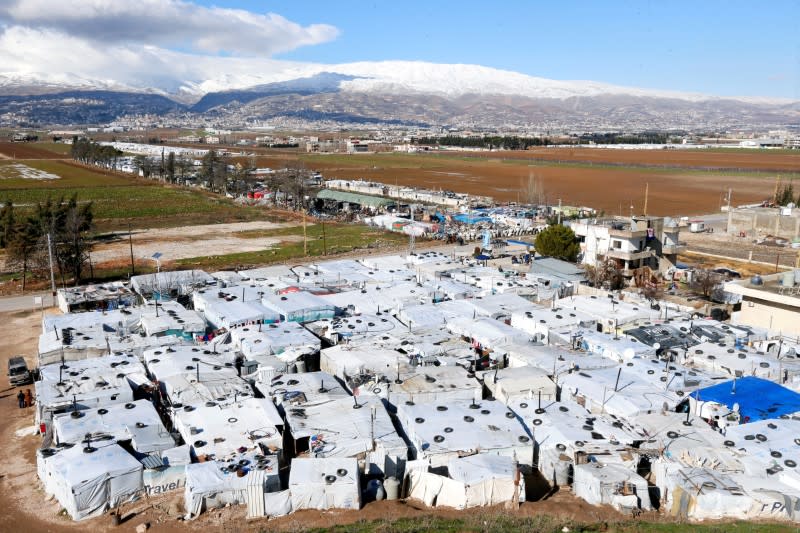
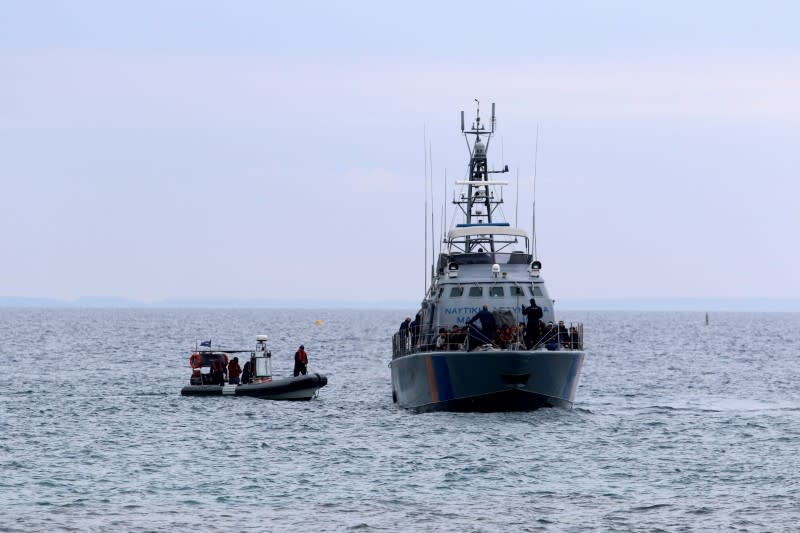



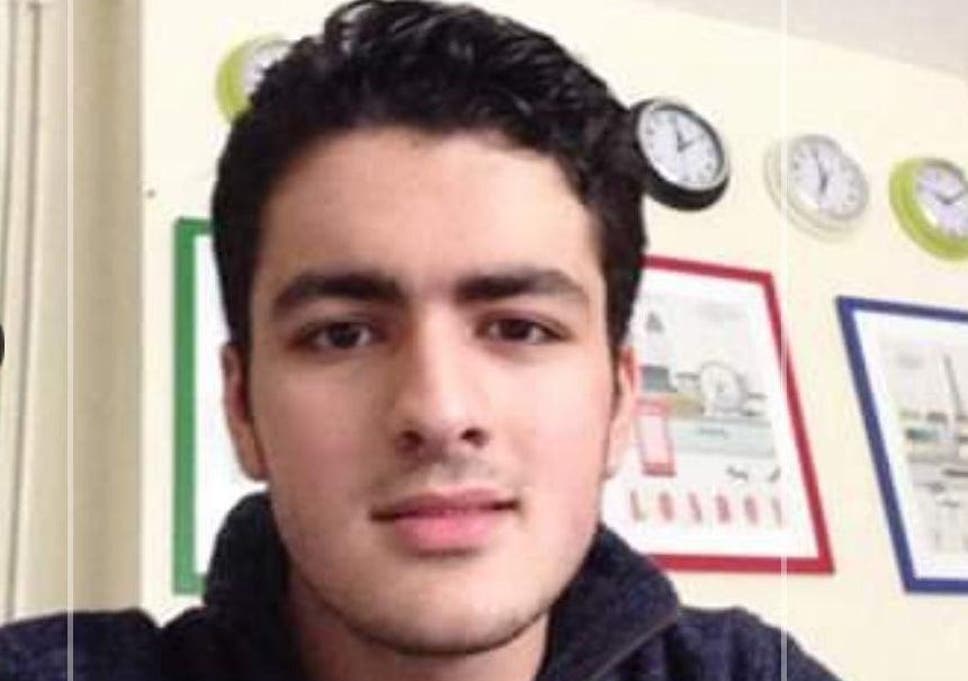

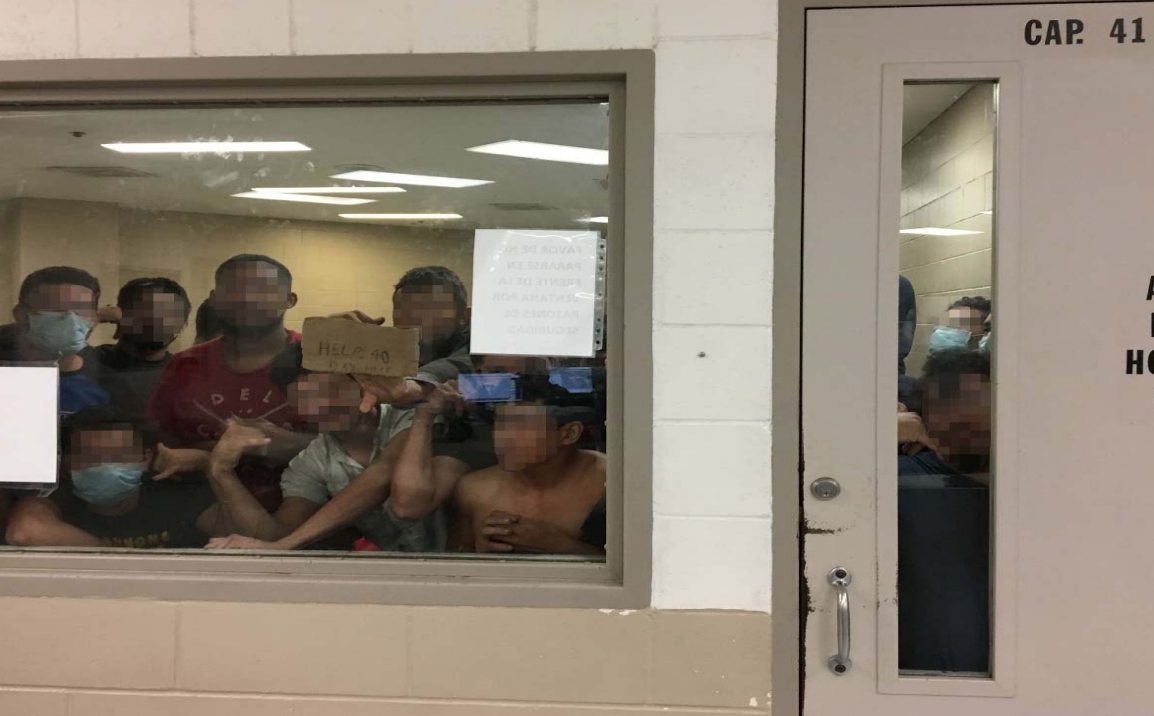

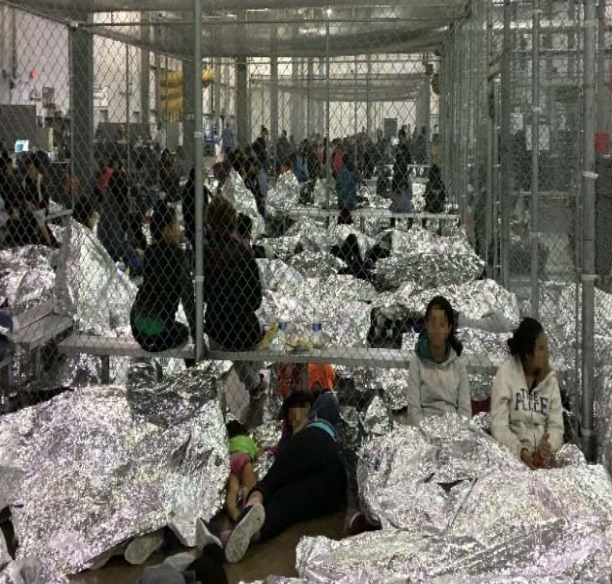
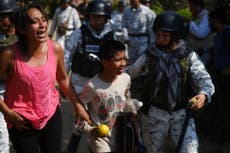
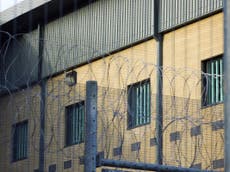




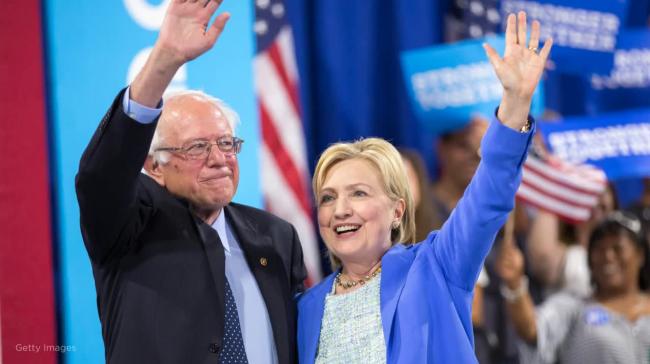
 Hillary Clinton and Bernie Sanders. (Photos: Richard Shotwell/Invision/AP, Elise Amendola/AP)
Hillary Clinton and Bernie Sanders. (Photos: Richard Shotwell/Invision/AP, Elise Amendola/AP)


